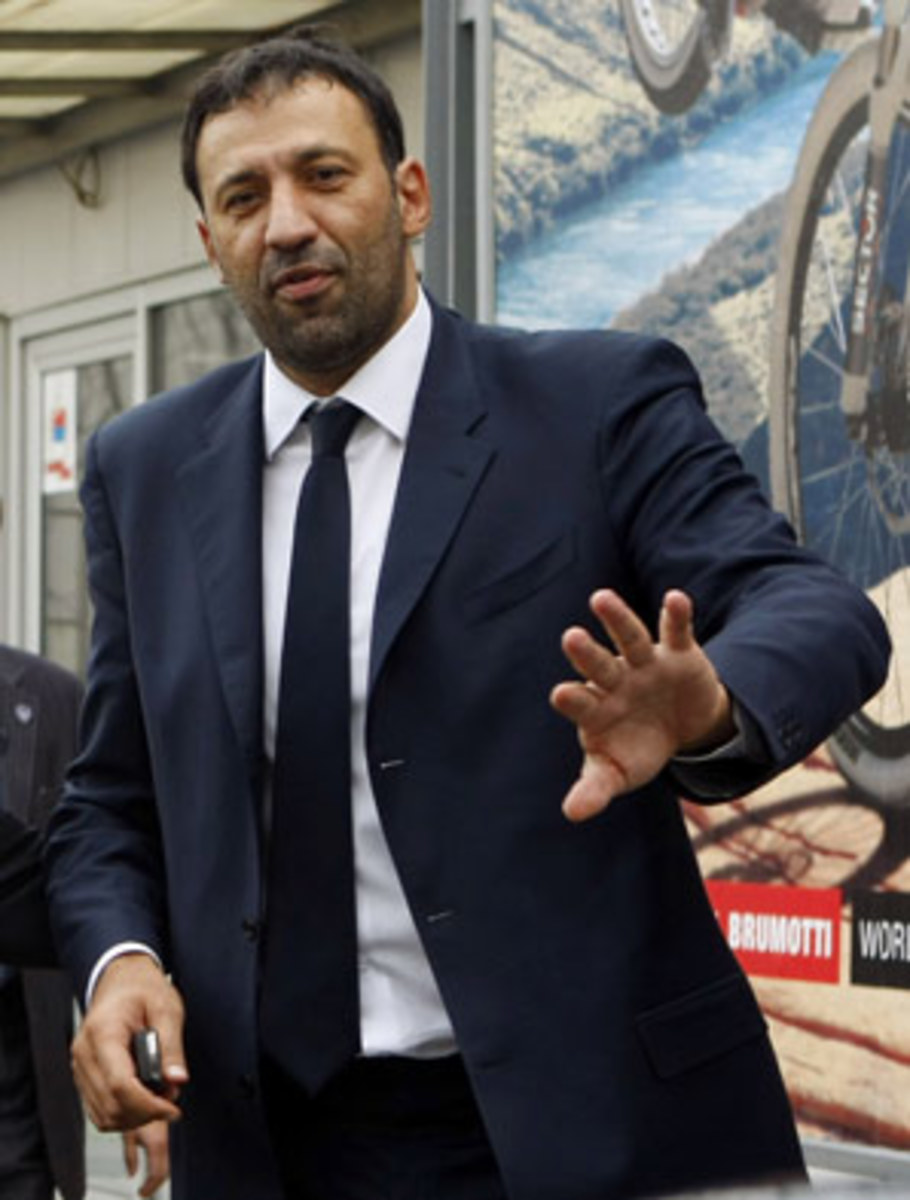
Divac enjoys second career as head of the Serbian Olympic Committee
CHICAGO -- Vlade Divac remembers the exact moment when he knew for certain that it was time.
The year was 2005, and he was, at 36, a still-reasonably-productive Los Angeles Lakers center in his 16th NBA season. Life was, for the most part, very good. He was playing basketball in the city he loved alongside the legendary Shaquille O'Neal and the soon-to-be-legendary Kobe Bryant, eating at the finest restaurants, staying in luxury hotels. Just happy, happy, happy ...
Then, The Moment.
"I came home from a road trip," he said. "No different from any other road trip I'd been on. It was 2 a.m., and I check on my kids, who are sleeping. And I see a man sleeping in one of the beds. It was my older son [Luka], and it really hit me. I thought to myself, 'Wow, I missed all of his childhood.'"
Within days, Divac made it official. He informed the Lakers that he was done; that the fire was extinguished and the drive dead. He was, at long last, ready to move on. New world! New adventures! New thrills! New ... eh, something ...
"It is easy to be excited about retirement," he said. "But retirement from sports is not easy. You are still a young man; you still have a life in front of you."
Indeed, before long Divac was bored. Family time can be great, but most retired athletes find the concept more appealing than the reality. Such is the all-too-common plight of the retired professional athlete who is accustomed to chartered airplanes and screaming fans and athletic glory and then -- poof! -- it's all gone.
In the days and weeks after wrapping up his career, Divac desperately sought out a new passion. As always, he devoted a great deal of time and money to humanitarian efforts related to his homeland of Serbia. He took a job as a European scout for the Lakers (yawn), then, in 2006, was introduced as the head of operations at Real Madrid basketball club (double yawn). "You would think those would have kept me busy and happy," he said. "But, honestly, I was very bored. When you play for so long, it is very difficult to watch. The competition is what drives a person, and without competition, well, it can feel empty."
The word -- empty -- hangs there, floating like one of Divac's old mini-hook shots. It is a hot June day in Chicago, and the 44-year old is sitting in the conference room of a Chicago law office. Though he last wore an NBA uniform six years ago, he has aged nary a day. His beard is dark, his forehead unwrinkled, his eyes bright and eager. Wearing sneakers, jeans and a T-shirt, he leans back in a chair and takes sips from a red can of Coca-Cola.
He is, at long last, content.
Divac is in his fourth -- and most important -- year as the president of the Olympic Committee of Serbia. The idea of running for the job first entered his mind in 2008, when he began seeking out new ways to merge charitable endeavors with athletics. "The Olympic values ... what can be stronger?" he said. "It just seemed righteous to me." Divac won an election in 2009 after Ivan ?urkovi?, the incumbent, dropped out. In the ensuing years, he has been responsible for everything. Although much of his time is spent in Belgrade, where he and 18 co-workers buzz man a small office, his life is a nonstop whirlwind of Olympic fundraisers, of serving as a liaison between the government and the athletes, of watching new sports ("women's volleyball seems very exciting!") and becoming acquainted with athletes he never before knew existed (Milica Mandic, Serbia's best hope for taekwondo glory, is absolutely dazzling).
"It is so very exciting for me," he said. "Because I know what the Olympic experience can mean for a person."
Indeed, before he was a Laker and a Hornet and a King, Vlade Divac was a member of the silver-medal winning Yugoslavia basketball team in 1988. This was prior to the nation being torn asunder by civil war, prior to Serbs and Croats dividing into mortal enemies. Back then, he was simply a young, gangly, awkward center, thrilled to be playing on the world's grandest stage against the best players in the world. "Magical," he said. "Just magical."
Twenty-four years later, Divac is still able to close his eyes and recall the emotions and energy and feeling. He can feel the medal being placed around his neck; can hear the crowds cheering. "For an athlete, it's a dream come true," he said. "Every Serbian athlete dreams of playing in the Olympics. Being in the NBA was wonderful, but it's extra. The first dream, for me, was the Olympics."
That's why, as the man leading his nation's Olympic charge, the words, "We must win ..." never emerge from Divac's lips. Sure, he craves triumphs, just as the United States does (he is a dual citizen, and owns a home in Los Angeles). But when Divac is asked about the victory-or-bust approach of certain nations, he cringes. "It's all about pride, and doing your best, and representing your country with honor," he said. "Yes, I will celebrate wins. But I will celebrate spirit even more."





